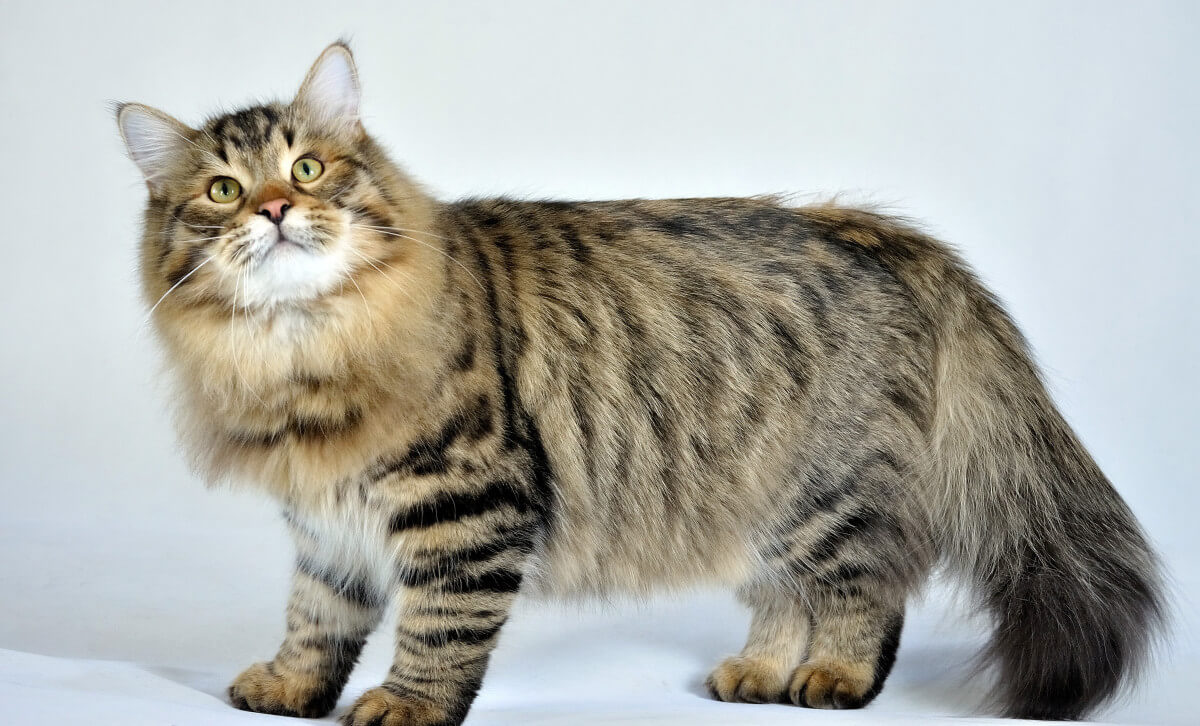Before buying a Siberian – or any cat breed for that matter – it is a good idea to, first of all, know how big they get.
This will help you know if the cat is a good fit for you considering the amount of space you have at home.
The size of the cat will also determine the cost because the larger the cat, the more you will likely spend on litter, food, beds, grooming, etc.
So, How Big Do Siberian Cats Get?
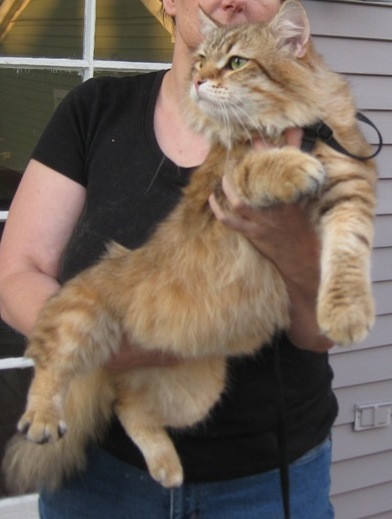
Well, Siberians are considered kittens until they reach 5 years after which they will now be fully grown.
A fully grown Siberian cat can weigh anything from 10-20 pounds and they will reach heights of 11-13 inches.
As with any other breeds, male Siberians are typically larger than their female counterparts.
For instance, a male Siberian cat can easily weigh 12-20 pounds while their female counterparts will weigh approximately 10 -13 pounds.
Siberians are considered to be a large cat breed – although they have nothing on the Maine Coon which grow to be as heavy as 25 pounds.
That said, they are still pretty large when juxtaposed with most of the other domestic cat breeds.
The following is a table that illustrates how the Siberian cat compares in size with other large cat breeds.
| Cat Breed | Weight | Height |
| Bombay | 5-10 lbs. | 7-9 inches |
| Tonkinese | 6-11 lbs. | 8-10 inches |
| Ocicat | 6.5-15 lbs. | 9-11 inches |
| Persian | 7-12 lbs. | 10-12 inches |
| Devon Rex | 8-10 lbs. | 10-12 inches |
| Russian blue | 8-15 lbs. | 8.5-10.5 inches |
| Siberian | 10-20 lbs. | 11-13 inches |
How Big Do Siberian Kittens Get?
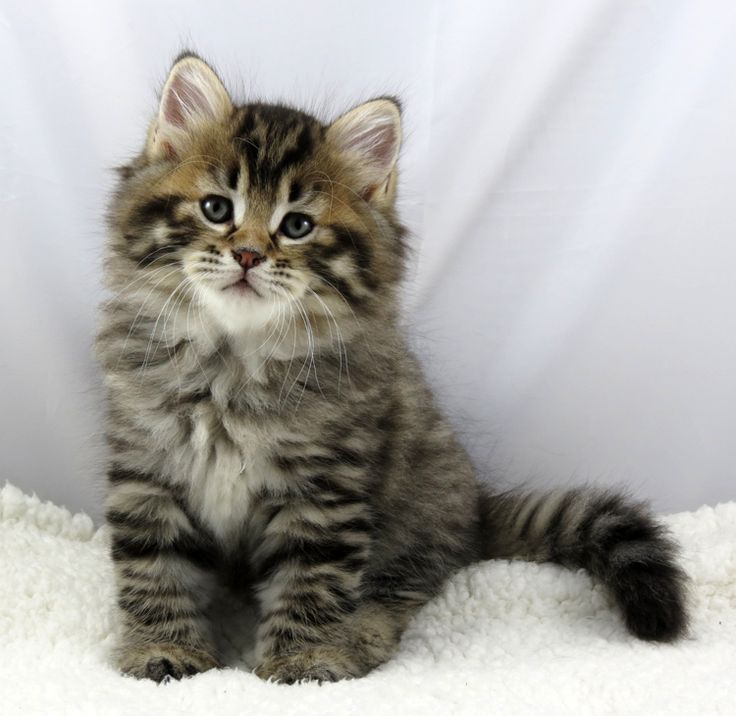
Siberian kittens are small when they are born, typically weighing between three and four ounces.
They grow quickly, however, and they will easily double their weight within the first week.
By the time they get to eight weeks old, they should be weighing around four pounds.
After hitting this milestone, they will gain about a pound a week until they reach their full size at around six months old when they weigh anything from 8-10 pounds.
Depending on a variety of conditions like gender and diet, the Siberian kitten may continue to add weight up to 20 pounds.
Siberians reach full maturity at 5 years and they should have reached their maximum height and weight by then – unless they get overweight.
Related Post: How Much Should A Kitten Weigh?
When Do Siberian Cats Stop Growing?
Siberian cats are generally considered to be full-grown by the time they reach two years of age, though they may continue to fill out and add muscle mass until they are three or four years old.
However, males tend to be larger than females, so they may not reach their full size until they are a bit older (typically 5 years).
So, if you’re wondering when your Siberian cat will finally stop growing, chances are it will be around two to four years of age.
By the time your cat hits 5 years of age, you can expect him to be fully grown and any additional weight gained might be a result of overeating, lack of exercise, or a combination of both.
Is My Siberian Cat Overweight?
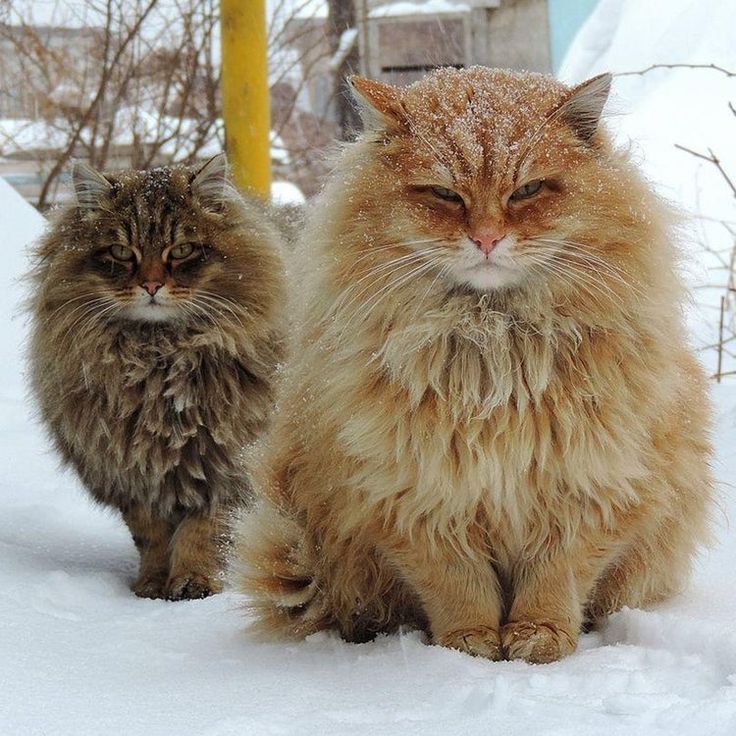
One of the easiest ways to tell if your cat is overweight is to look at them from above.
If you can’t see their waist, they’re likely carrying around too much weight.
Even though Siberians are huge cats, they are usually evenly weighted and so any uneven features might be a sign that your cat is overweight.
Another way to tell if your cat is overweight is to feel their sides. You should be able to feel their ribs without having to press too hard.
If you can’t feel their ribs or if they have a thick layer of fat covering them, they may be overweight.
Also, check to see if your Siberian has an extended belly that is hanging loosely.
While Siberian cats are known for being finicky eaters, they could still overeat. Just like humans, cats can become overweight if they consume more calories than they burn off.
Another cause of cat obesity is a lack of exercise. Your Siberian cat may not get enough opportunity to run and play especially if he is an indoor pet.
In some cases, medical conditions such as thyroid problems or diabetes can also contribute to obesity in Siberians.
As such, it’s important to talk to your veterinarian about your cat’s overweight problem to make sure there aren’t any underlying diseases.
Siberians are playful cats, so if you notice that your Siberian doesn’t seem as interested in playing as they used to, it could be a sign that they’re carrying around extra weight.
Excessive weight is detrimental to your cat’s well-being and you may want to take immediate corrective measures including changing their diet and exposing them to more play and stimulating exercises.
It would also be a good idea to consult with a vet to know the best way to manage the weight without harming your feline friend.
Related Posts:
How Long Does It Take For A Malnourished Cat To Gain Weight?
Are Siberian Cats Gentle?
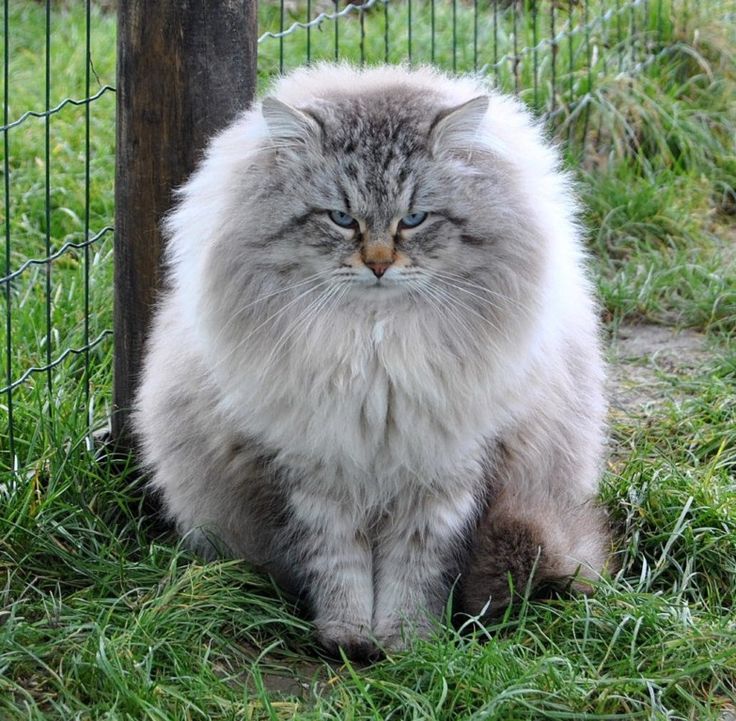
Siberians may be large but they are gentle giants.
While your typical Siberian loves lazing around the house or snuggling on the couch, they are also very affectionate and they love to cuddle with their family members.
They also enjoy playing with children and toys and are also easily trained to perform tricks.
You will want to give them plenty of room to play, jump and climb which they will happily do before taking a long siesta.
These gentle giants can therefore be a great addition to a family that has children.
Related Post: Are Siberian Cats Friendly?
In Summary…
Siberian cats are gentle giants that can make great additions to any family.
They typically reach their full size at around two to four years old and they can weigh anywhere from 10-20 pounds.
This is typically true for females because males might not reach their full weight until they turn 5 years old.
In some cases, Siberian cats might be larger than the typical 20 pounds and this is mostly due to obesity.
There are lots of causes for obesity in Siberian cats including poor diet, lack of exercise or sickness.
The easiest way to tell if your cat is suffering from obesity is to check if they have a sagging stomach.
If they do, you may want to watch what you feed them and also give them lots of exercise.

Hi! I am Eleanor Price. I started this website after my cat, Louie, almost died from a case of botulism (a type of food poisoning often caused by bacteria that grow on food items). Turned out that my cat’s diet was the problem. I have made it my duty to provide the best information and recommendations about everything cat lovers need to know about their felines’ health and wellbeing. My goal is to find the most informative content on anything feline-related and share it with fellow hardworking kitty lovers.

